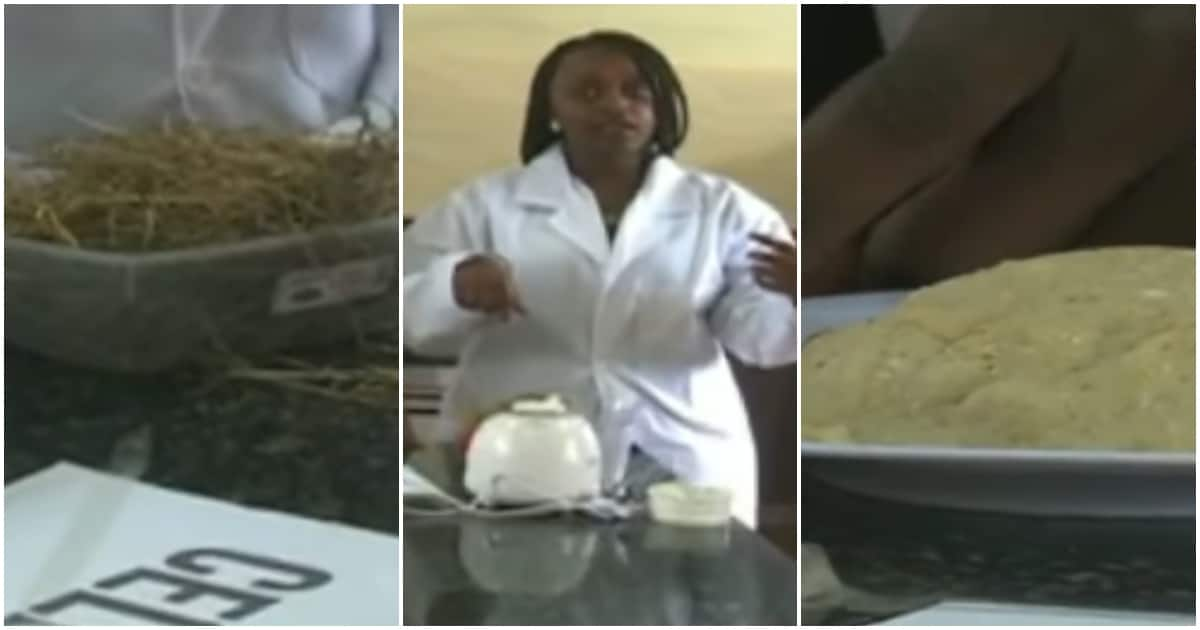Varsity students invent Ugali flour from grass

Varsity students invent Ugali flour from grass that will sell at Ksh35 per kilo if approved by the government
Varsity students invent Ugali flour from grass that will sell at Ksh35 per kilo if approved by the government.
If given permission for commercial sale, four Kabarak University students’ invention of grass-based ugali flour will sell for Ksh35 per kilogram.
Faith Wandia, who holds a master’s degree in business administration, is the creator of the concept. She was inspired by the sheer number of people dying of hunger as a result of the nation’s ongoing drought.
To solve the food shortage, Wandia considered turning cellulose, a substance found in grass, into edible starch.
She put together a team in 2020 that included Edgar Ruto (computer science), Salome Njeri (economics), and Innocent Bahati (clinical medicine) to make her dream a reality.
“Yes, we harvest grass and turn it into edible starch. We started with numerous trials and errors to establish what would work. Sometimes we would get glucose instead of starch,” Wandia told NTV.
The grass was a cheaper option due to its availability. The team uses Bermuda and Ryegrass, which takes between two to three months to maturity.
Harvested grass is then dried and crushed into a powder. However, Bahati explained that it needed to go through a scientific process to make it fit for human consumption.
“Human beings don’t have the cellulase enzyme to break down cellulose.
“We add water and enzymes to the mix, and cellulose is converted to amylose – almost similar to the starch found in maize,” he explained.
The powder turns from green to practically white during the procedure. The texture and scent, according to Bahati, are comparable to those of maize flour.
The iodine test is then performed on a product sample to determine whether starch is present.
Once cleared for commercialization, the product will trade at Ksh35, taking into account both additional costs and the price of making a kilogram of the flour (Ksh23 per kilo).
Wilson Balongo, the innovation coordinator at Kabarak University, claims that the team submitted their patent application to the Kenya Industrial Property Institute.
Medics and the Kenya Bureau of Standards (KEBS) are yet to address the innovation.
Also read,
KUPPET warns of looming CBC crisis after DP Gachagua’s directive
Public schools leading in CBC practicals, reports
Ruto forms a 12-member economic transformation team as he follows Kibaki’s footsteps
Follow us




